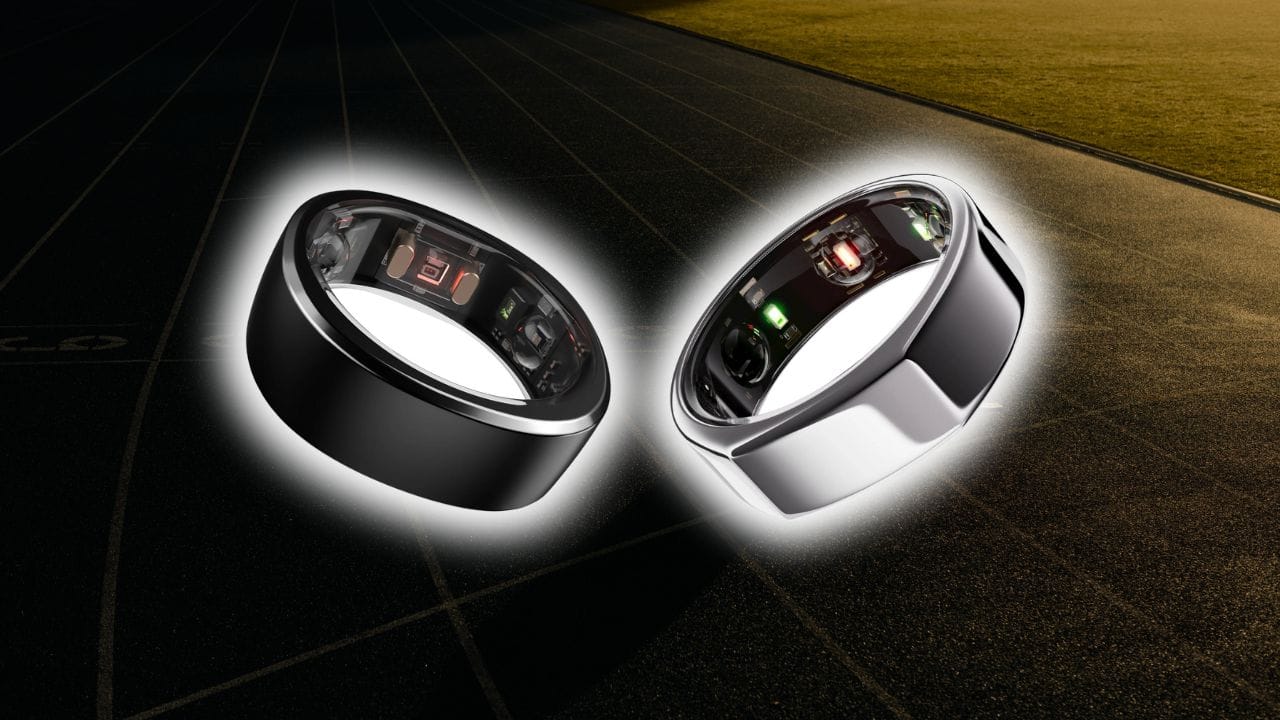We include links to products we think are useful for our readers. If you click and buy a product through one of the affiliate links on this page, we may earn a small commission. Please read our disclosure.
Smart rings have been making waves in wearable tech, offering health tracking in a compact design. Two popular options in this space are the RingConn and Oura Ring. While both aim to help you stay on top of your health, they cater to different needs and preferences.
Choosing between these two depends on what you value most. Are you looking for something affordable with basic features? Or do you prefer advanced insights and don’t mind paying a bit more?
It shouldn’t be that hard for you, but I’ll make it seamless.
I’ll break down their differences to help you decide which one suits your lifestyle better.
RingConn Smart Ring vs. Oura Ring

RingConn Smart Ring
Priced at $279. No subscription fees. One-time purchase.

Oura Ring Gen 3
Priced at $299. Free first month after purchase. $5.59/mo afterwards.
Design and Comfort

When it comes to wearable tech, design and comfort matter just as much as the features. After all, you’ll be wearing these devices every day, and the last thing you want is something that feels clunky or out of place.
RingConn
The RingConn has a solid, durable build, which is great for longevity but can feel bulky, especially if you have smaller hands. Though it’s a bit awkward to wear for long periods, especially during activities that involve a lot of hand movements. While it’s not the most discreet option, it does look modern and functional.
Oura Ring
The Oura Ring, on the other hand, is sleek and minimalist. It’s designed to feel like a natural part of your day, blending in with your style without screaming “tech gadget.” I appreciate how lightweight it feels, making it comfortable for long-term wear, whether you’re at work, at the gym, or sleeping.
Comparison
If you prioritize a subtle, stylish look, the Oura Ring wins hands down. But if durability and a solid feel are more your thing, the RingConn might be a better fit.
Battery Life
Battery life is one of those things you don’t think about much—until it becomes a hassle.
Both the RingConn and Oura Ring offer decent battery performance, but there are some differences worth noting.
RingConn
The RingConn really impressed me with its battery life. It was advertised that it could go up to 10-12 days. However, it lasts up to seven days on a single charge. But it’s still great, nonetheless. It means I don’t have to think about charging it constantly. It’s the kind of convenience I appreciate, especially when life gets busy. I can just put it on and forget about it for a week.
Oura Ring
The Oura Ring holds its own, but its battery life is slightly shorter, clocking in at around four to five days. If I enable extra features like continuous heart rate monitoring, I find myself charging it closer to every four days. It’s not a dealbreaker, but it does mean I need to be more mindful of when to plug it in—especially if I want it to track my sleep uninterrupted.
Comparison
For me, the RingConn wins in this category. Its longer battery life gives me peace of mind and less interruption in my routine.
However, if I prioritize advanced tracking features, I’m okay with charging the Oura Ring a bit more often. It’s all about what feels more practical for day-to-day use.
User Interface and App Experience

How the data is presented can make or break the experience with any wearable.
RingConn
The RingConn app keeps things simple. It’s easy to navigate, and I can quickly check my sleep, heart rate, and activity levels without digging through endless menus. That said, I’ve noticed the insights are pretty basic. While I get the raw data, it doesn’t offer much in terms of actionable advice. It’s fine if I just want to see the numbers, but I’m often left wondering what I should actually do with that information.
Oura Ring
The Oura app feels more polished and packed with value. Not only does it display my metrics clearly, but it also gives me tailored insights and suggestions based on the data. For example, it might recommend taking it easy if my readiness score is low or nudge me to move more if I’ve been sedentary. It’s like the app is actively trying to help me improve, which I really appreciate.
Comparison
If I’m someone who just wants a straightforward view of my health data, the RingConn app does the job. But if I value deeper insights and guidance, the Oura app stands out.
Personally, I find the extra advice from the Oura app helpful, especially when I’m trying to make better decisions about my activity and recovery. It’s a more engaging experience overall.
Cost and Subscription Model
Cost is often a deciding factor, especially when wearables like these come with both upfront prices and potential ongoing fees.
Here’s how the RingConn and Oura Ring compare when it comes to affordability.
RingConn
The RingConn is pretty straightforward. At $279, it’s a one-time purchase with no subscription fees. I like that there are no surprises down the line—what I pay upfront is all I’ll ever need to spend. It’s refreshing not to worry about recurring costs, which makes it feel like a solid investment for basic health tracking.
Oura Ring
The Oura Ring, on the other hand, has a higher upfront cost, ranging between $299 and $349 depending on the model. On top of that, there’s a subscription fee if I want access to all the features in the app—$5.99 per month or $59.99 per year. While I don’t mind paying for premium features, it does add up over time, making it one of the pricier options in this category.
Comparison
If I’m looking for an affordable, no-strings-attached device, the RingConn is the clear winner. The lack of subscriptions is a major plus for budget-conscious buyers like me.
However, if I’m after the advanced insights and extra features that come with the Oura app, I’m okay with the ongoing costs.
It’s a trade-off between upfront savings and long-term value, and it depends on what I’m willing to spend for a more premium experience.
Pros and Cons
Both the RingConn and Oura Ring have their strengths and weaknesses.
Here’s how I’d break it down based on my experience and what I value in a smart ring.
RingConn Pros
- Affordable: With a lower upfront cost and no subscription fees, it’s easy on the wallet.
- Great Battery Life: Lasting up to seven days, it doesn’t interrupt my routine.
- Simple Interface: The app is easy to use and gets straight to the point.
RingConn Cons
- Limited Insights: The app doesn’t offer much guidance or actionable advice.
- Basic Tracking: Features like workout and calorie tracking aren’t always accurate.
- Bulky Design: It feels less comfortable, especially during extended wear.
Oura Ring Pros
- Comprehensive Insights: The app provides detailed health metrics and helpful suggestions.
- Stylish Design: Its sleek and minimalist look fits seamlessly into everyday life.
- Holistic Tracking: Advanced sleep analysis, readiness scores, and wellness trends give a complete picture.
Oura Ring Cons
- Higher Cost: The upfront price, plus a subscription fee, makes it a pricier option.
- Shorter Battery Life: Four to five days of use means more frequent charging.
- Feature Overload: If I don’t need advanced metrics, it might feel like overkill.
Ideal User Profiles
It’s clear that the RingConn and Oura Ring cater to different needs. Here’s who I think would benefit most from each option.
Who Should Choose RingConn
If I’m someone who wants a budget-friendly way to monitor my health, the RingConn is a great choice. It’s perfect for casual tracking—keeping an eye on sleep and basic metrics without overcomplicating things. I’d also pick this if I don’t want to deal with subscriptions or frequent charging.
It’s the kind of device that does the essentials and leaves it at that.
Who Should Choose Oura Ring
The Oura Ring is ideal if I’m serious about understanding my health on a deeper level. It’s especially useful for anyone who values detailed sleep tracking, readiness scores, and actionable advice. I’d go for this if I’m okay with spending more upfront and paying a subscription for the extra features.
It’s a better fit for someone like me who wants a comprehensive health overview and doesn’t mind investing in premium tools.
Also read: Oura Ring vs. Whoop
Final Verdict: Ringconn Wins

RingConn Smart Ring
Priced at $279. No subscription fees. One-time purchase.

Oura Ring Gen 3
Priced at $299. Free first month after purchase. $5.59/mo afterwards.
When it comes to overall value, the RingConn edges out as the winner for me. Here’s why: it delivers the essential features I need without breaking the bank. At $279 with no subscription fees, it’s a one-and-done purchase. For someone like me who prefers to keep things simple without compromising on the basics, this makes a huge difference.
Sure, the Oura Ring has advanced insights and a sleek design, but the extra cost—both upfront and through ongoing subscription fees—makes it less appealing when I weigh the value it adds.
While the Oura Ring might suit someone who thrives on detailed data and tailored advice, I find that the RingConn gets the job done for most everyday health tracking needs. It tracks sleep well, provides key health metrics, and lasts up to seven days on a single charge—all for a much lower total cost.




